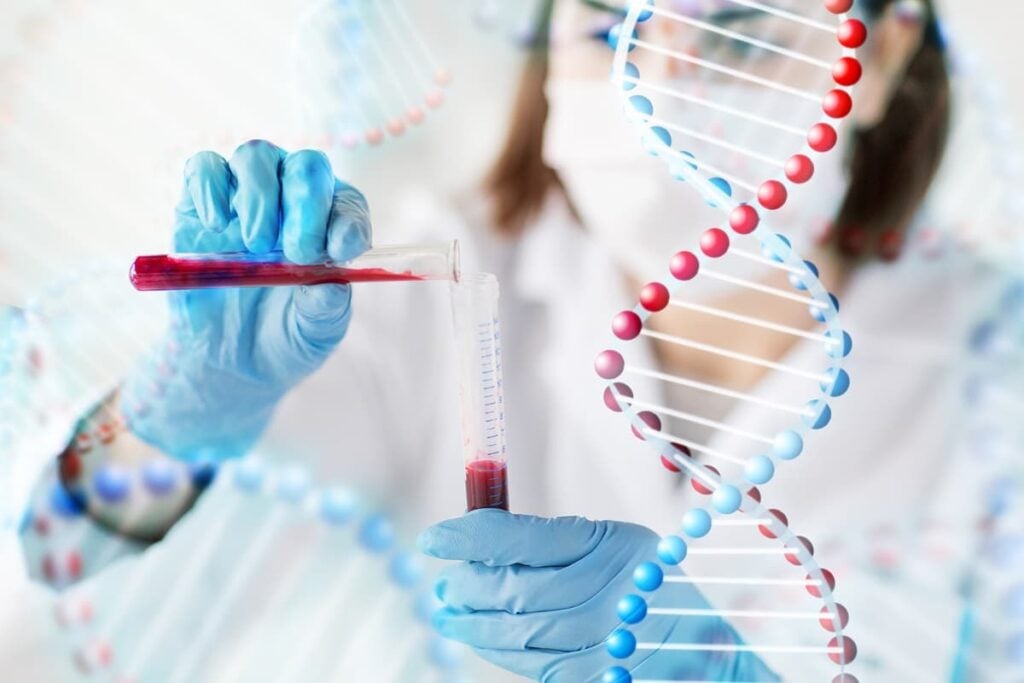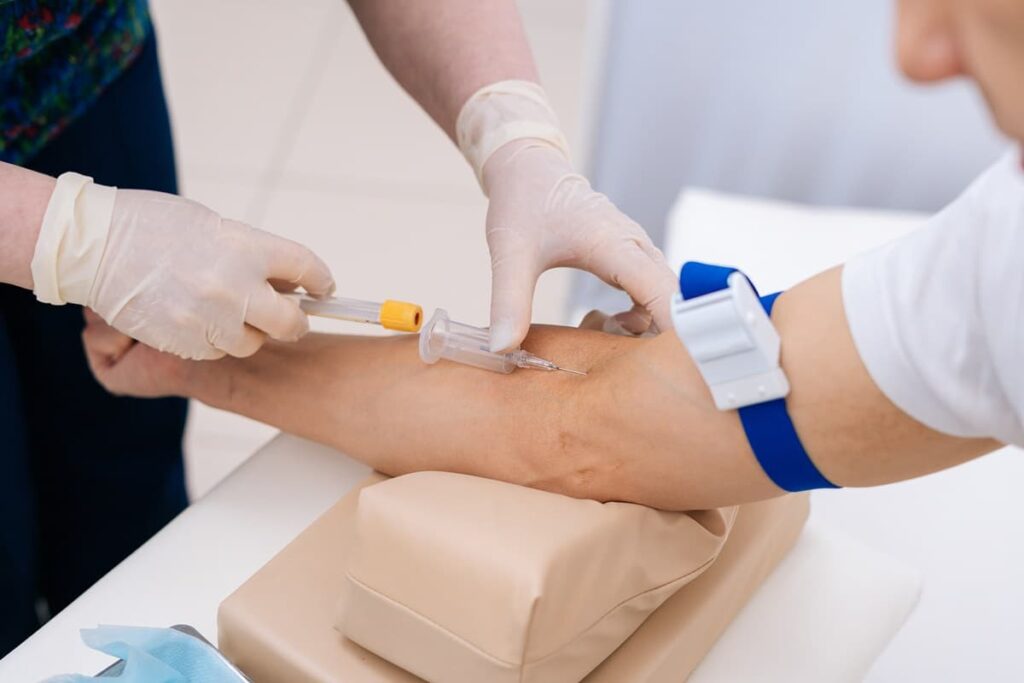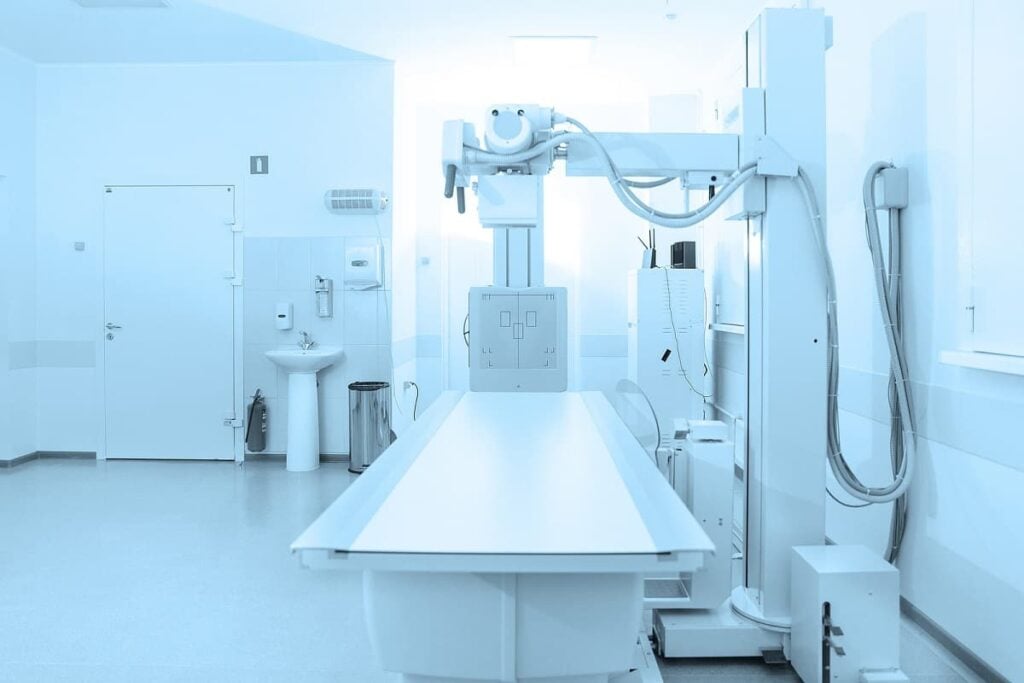7 AI Cancer Diagnostics Startups Digitizing Healthcare
Table of contents

The world seems more divided today than ever, whether we’re talking about politics or the questionable art form of twerking. However, there’s one thing we can all agree on: cancer sucks. Nearly 40% of us will receive the dreaded diagnosis at some point in our lives, according to the National Cancer Institute. That’s one reason why we’ve spent quite a bit of time writing about the topic, particularly the different technologies being developed to detect various forms of the disease. It’s really a no-brainer: Data from Cancer Research UK suggests 80% of patients survive for at least 10 years after being diagnosed in the early stages of eight of the most common cancers. Genetic tests and liquid biopsies are among the emerging diagnostic tools that we’ve covered previously, most recently with our piece on 9 Genomics Startups for Investors to Watch. In this article, we want to highlight the advances being made in AI cancer diagnostics for digitizing healthcare in pathology, radiology, and elsewhere.
Earlier this month we talked about how much money is being invested into healthcare startups that are working on artificial intelligence, with the bright minds at data research firm CB Insights estimating that those companies have raised more than $1.4 billion in the first half of 2019 alone. We’ve written about quite a few of these startups, from those employing AI for drug discovery to simulating cancer cells using AI. The leading category by far is in AI diagnostics and imaging technology. Algorithms are getting particularly adept at identifying anomalies in medical imagery, and that’s where we’re seeing many AI healthcare startups finding success in oncology diagnostics.
An Operating System for Battling Cancer
Let’s start with Tempus, a Chicago-based startup that has raised a whopping $520 million since it was founded in 2015. The company most recently pocketed $200 million from a Series F in May. You’re probably more familiar with one of billionaire founder Eric Lefkofsky’s other ventures – Groupon (GRPN). His latest company is no bargain at a valuation of $3.1 billion. Tempus is creating what it calls an operating system to battle cancer using big data and a subset of AI called machine learning. More specifically, Tempus combines genomic sequencing of tumors, AI-powered tools to structure diverse datasets like oncology notes and pathology reports, and machine-learning algorithms fine-tuned to analyze radiology and pathology images. The result, the company contends, is a data-driven treatment customized for each patient.

Tempus has leveraged its power and money to swing a number of deals, such as a licensing agreement with the American Society of Clinical Oncology to extract and organize data from one million patient records, according to a company profile in Forbes. Tempus reportedly works with 30% of U.S. oncologists and hopes to sequence 120,000 genomic samples for doctors this year. Last month, Tempus announced it would expand its focus to include AI diagnostics for cardiology to predict dangerous cardiac events and diseases before they occur. The effort is being done in partnership with Geisinger Health System, a regional health care provider with 1.5 million members in Pennsylvania and New Jersey.
Update 11/07/2020: We profiled Tempus in a piece titled Tempus Uses AI and Big Data for Precision Medicine.
Machine Learning for Pathology

Whereas Tempus is working directly with doctors like oncologists, PathAI has been building relationships with researchers and pharmaceutical companies like Novartis (NVS), Gilead Sciences (GILD), and Bristol-Myers Squibb (BMY).
Update 05/19/2021: PathAI has raised $165 million in Series C funding to grow its commercial reach and the platform’s clinical research capabilities. This brings the company’s total funding to more than $255.2 million to date.
An AI Supercomputer for Pathology

The New York startup was granted “Breakthrough Designation” by the U.S. Food and Drug Administration (FDA) earlier this year, the first time a company has received the designation for AI in cancer diagnosis, putting the technology on the fast track for approval.
Update 03/04/2021: Paige has raised more than $125 million in Series C financing to expand its geographic footprint as it accelerates the development of AI-based clinical applications, biomarkers, and diagnostics. This brings the company’s total funding to $485 million to date.
AI Diagnostics for Breast Cancer
We’ve written before about the significance of detecting breast cancer early, so it’s no surprise that we’ve come across a couple of companies that are focused on that part of AI cancer diagnostics. In fact, research published just this month further validated the use of AI for breast cancer diagnostics. The algorithm was trained on roughly a million mammography images and identified breast cancer with 90% accuracy when combined with analysis by radiologists.
Founded in 2016, London-based Kheiron is apparently named after a centaur from Greek mythology that was known for his skill in medicine and not for the French-Iranian comedian like most of us would assume. The company took in $22 million last month, which Kheiron hopes will help it scale its machine learning platform dubbed Mia. Mia analyzes standard mammography images to help radiologists make the decision of whether or not a woman requires further evaluation. The company says the software has already shown success in a multi-center clinical study, and the new funds will help with further clinical programs in the United States and Europe, where the tech has already received limited approval.


NIRAMAI also provides a web interface shoehorned into a name called Software with Machine Intelligence for Life Enhancement (SMILE) where radiologists can access results and generate reports.
AI Diagnostics for Skin Cancer
Skin cancer is the most common cancer in the United States, according to the American Academy of Dermatology, which says about 9,500 people in the U.S. are diagnosed with skin cancer every day. If only someone would invent an app that could detect and track all those weird moles. Enter SkinVision, a Dutch startup founded in 2012 that has raised $12.2 million for just that purpose. Available as both an iOS and Android app, SkinVision uses a smartphone camera to take an image of a lesion that an algorithm analyzes for irregularities and other signs, returning a risk assessment, ranging from low to high, in about 30 seconds.

A study published last month gave the algorithm a passing grade with 95.1% sensitivity in detecting pre-malignant conditions. The company claims more than one million users globally.
Streamlining Pathology Workflow with AI


Last month, Ibex entered into partnership with another AI healthcare startup called Inspirata that also provides cancer pathology support to clinics. The latter company, however, actually offers a suite of different AI-powered solutions to manage cancer care from diagnostics to treatment. Will take a look at Inspirata and a new class of AI healthcare management startups in a future article.
Conclusion
Getting a fast and accurate pathology report is the most important step toward successfully diagnosing and treating cancer. It’s not only about detecting cancerous cells but determining the severity or stage of the disease. No one is talking about replacing pathologists – yet – but machine learning algorithms are quickly becoming an essential tool for augmenting the diagnostic process.
Sign up to our newsletter to get more of our great research delivered straight to your inbox!
Nanalyze Weekly includes useful insights written by our team of underpaid MBAs, research on new disruptive technology stocks flying under the radar, and summaries of our recent research. Always 100% free.














